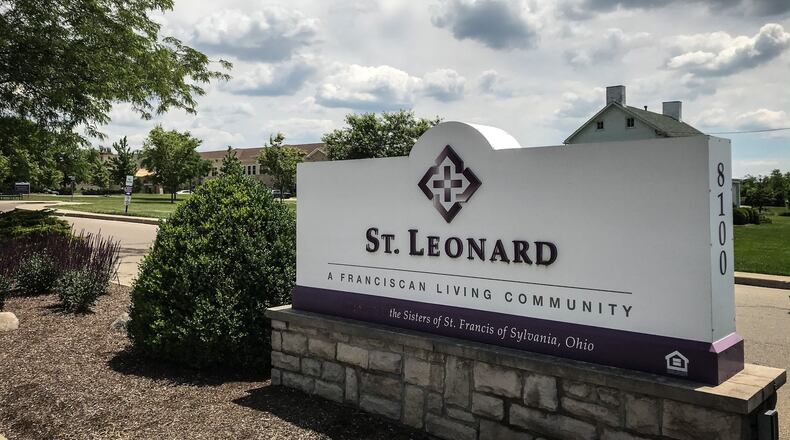MORE: COVID-19 testing for long-term care still lacking
Residents and families can look online at coronavirus.ohio.gov, click on the COVID-19 Dashboard and go to Long-Term Care Facilities to see what facilities are listed as having current cases with residents or staff. Facilities have reported when the dashboard was first launched mid April that there were some cases mislabeled by facility or out-of-date so people with questions can confirm the information is accurate and up-to-date by calling the long-term care community.
Chip Wilkins, Long-Term Care Ombudsman, who advocates for residents in the Dayton region, said families can also call facilities to check-in and see if there have been COVID-19 cases and learn more about the facility’s protocol. Before visitor restrictions went in place in March, his office went to every local facility and went through a COVID-19 checklist with them to make sure the facility had what they needed and had procedures in place to protect residents.
“I tell people all the time, you can absolutely call the facility and ask if they had any outbreak and they will tell you honestly what has transpired. I remember the first couple weeks facilities didn’t want to answer that question but we’ve been working with them and it’s all very transparent,” Wilkins said.
He said the local public health department where a long-term facility is will be alerted when there’s a positive test and will also be aware of any outbreaks.
A relative of a St. Leonard resident at the retirement community provided the Dayton Daily News with a letter she said the executive director sent to families Monday.
The Ohio National Guard was scheduled to arrive Tuesday to test all employees for COVID-19 at the continuing care retirement community, 8100 Clyo Road, according to the letter.
PREVIOUS COVERAGE: Ohio National Guard to help with nursing home coronavirus testing
In the letter, St. Leonard’s executive director Jennifer Gibson said they notified public health officials and are working closely with them to monitor and report active cases.
St. Leonard also said it will provide updates at least weekly, and by 5 p.m. the following day when it has a confirmed or suspected case, and asked people to not be alarmed.
“Given the high-risk population we serve, we have put into place — and continue following — numerous preventive measures, per guidance from the CDC and public health officials,” the letter stated.
Those measures include restricting visitors, suspending communal activities, monitoring residents and staff for potential signs of COVID-19; requiring masks for all staff; and frequent handwashing and disinfecting common surfaces, according to the letter.
The Dayton Daily News reached out Tuesday morning to St. Leonard for more information.
Nationwide, more than 45,500 residents and staff have died from coronavirus outbreaks at nursing homes and other long-term care facilities, according to a running count by the Associated Press. That’s about 40% of more than 115,000 total deaths.
Instead, Grabowski says it’s simpler: Because the virus can be spread by people who show no symptoms, that means if it’s already in a community, the staff can unwittingly bring it into the nursing home. Once inside it easily spreads among frail residents living in close quarters.
PREVIOUS COVERAGE: Miami County nursing home hot spot under ‘control,’ industry challenges remain
“The secret weapon behind COVID is that is spreads in the absence of any symptoms,” Grabowski told lawmakers at a recent briefing. “If COVID is in a community where staff lives, it is soon to be in the facility where they work.”
He proposed a federal effort to regularly test nursing home staff and residents, along with greater supplies of masks, gowns and other protective gear.
“The federal government needs to own this issue,” said Grabowski.
Associated Press contributed to this report.
About the Author
